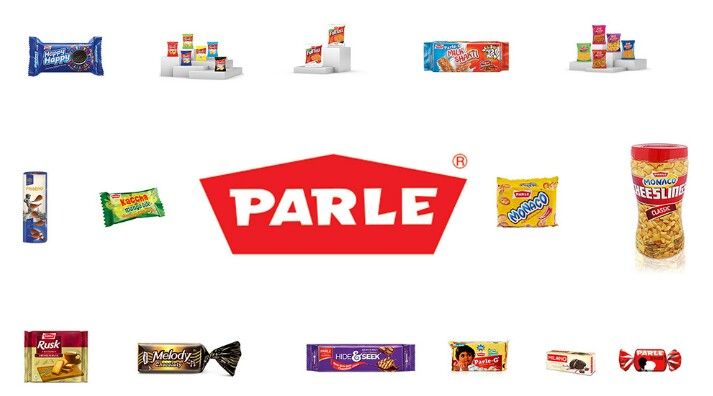- Made in India
- Updated on April 22, 2025
Exploring the Secrets Behind the Success of Leading Made in India Brands

India has long been known for its rich culture, heritage, and diverse industries. Over the past few decades, the “Made in India” label has evolved into a symbol of quality, innovation, and global recognition. Many Indian brands, once operating on a small scale, have made a mark internationally, competing with some of the most renowned global players. In this blog post, we will explore the secrets behind the success of these leading Made in India brands, examining their strategies, innovation, and the factors that have helped them rise to prominence.
The Power of Innovation
One of the primary reasons behind the success of Made in India brands is their focus on innovation. Companies in India have adapted to changing market demands by developing new technologies, products, and business models that cater to both domestic and international consumers.
1. Technology Integration
Indian brands have embraced cutting-edge technology to streamline operations, improve product quality, and enhance customer experience. For example, the rise of e-commerce has allowed brands like Flipkart and Myntra to reach millions of customers across India and abroad. These platforms have leveraged AI, data analytics, and machine learning to personalize shopping experiences, forecast demand, and optimize supply chains.
By adopting digital tools, companies like Zomato and Swiggy have revolutionized the food delivery industry. They used technology to create seamless platforms for consumers, allowing them to order food from their favorite restaurants with ease. This focus on innovation has been instrumental in their success, as they continue to grow in both India and international markets.
2. Product Innovation
Another key aspect of success is product innovation. Many Indian brands have set themselves apart by offering unique products tailored to the needs and preferences of consumers. Bajaj Auto, for example, succeeded by creating affordable motorcycles and scooters that catered to the mass market. Similarly, Tata Motors has introduced electric vehicles, contributing to India’s shift toward sustainable transportation.
In the beauty and wellness industry, Himalaya has captured market share by offering natural, plant-based products that appeal to the growing demand for sustainable and eco-friendly options. Brands like Mamaearth have taken it a step further, focusing on toxin-free and organic beauty products, which have quickly gained popularity among health-conscious consumers.
Building Trust with Quality

Quality is at the core of every successful Made in India brand. Companies that emphasize quality control and customer satisfaction are more likely to establish a strong reputation and build trust with their audience. Leading brands such as Amul, Dabur, and Marico have demonstrated that consistent quality is key to long-term success.
1. Commitment to Quality
Indian companies have consistently invested in research and development (R&D) to ensure that their products meet international standards. Amul, one of India’s most iconic dairy brands, has built a reputation over decades by maintaining high-quality standards for its dairy products. The brand’s commitment to quality has helped it expand from a local dairy cooperative to a multinational corporation.
Similarly, Dabur has maintained its focus on producing high-quality Ayurvedic products. By ensuring that its products meet global standards, Dabur has gained the trust of customers across India and abroad. The same focus on quality is reflected in Marico’s portfolio, with brands like Parachute and Saffola known for their consistent product excellence.
2. Global Standards
To succeed in international markets, Made in India brands must adhere to global quality standards. Many brands have achieved this by investing in state-of-the-art manufacturing facilities and ensuring compliance with international regulations. For example, Bajaj Electricals has expanded its operations globally by producing high-quality electrical products that meet the needs of consumers worldwide.
3. Sustainability and Ethical Practices
In recent years, consumers have become more conscious of the environmental and social impact of the products they purchase. Leading Indian brands like Tata Group and ITC have embraced sustainability and ethical business practices. By incorporating eco-friendly manufacturing processes, reducing carbon footprints, and supporting social initiatives, these companies have positioned themselves as responsible brands that prioritize both people and the planet.
Strong Brand Identity
A strong and recognizable brand identity has played a significant role in the success of many Made in India brands. Establishing a unique brand story, message, and visual identity helps companies connect with consumers and create lasting impressions.
1. Branding and Positioning
Indian brands have done an excellent job of branding and positioning their products to appeal to both local and global markets. For example, Tata Consultancy Services (TCS) has positioned itself as a global leader in IT services by focusing on innovation, customer-centricity, and delivering value. The company’s strong brand identity has allowed it to become one of the top IT service providers in the world.
Similarly, Asian Paints has built a strong brand identity by offering a wide range of products and focusing on customer needs. The brand has expanded beyond India and is now present in numerous international markets, thanks to its innovative products and excellent customer service.
2. Creating Emotional Connections
Brands like Tata and Reliance have successfully built emotional connections with consumers through their storytelling and values. For example, Tata Group has built its reputation on trust, quality, and social responsibility, which has resonated deeply with Indian consumers. This emotional connection has helped Tata expand its presence in various industries, including automobiles, telecommunications, and hospitality.
Customer-Centric Approach
The success of Made in India brands can also be attributed to their customer-centric approach. Companies that prioritize the needs and preferences of their customers are more likely to succeed in a competitive marketplace.
1. Understanding Consumer Needs
Leading brands have invested in understanding the needs of their target market. Reliance Jio, for instance, revolutionized the Indian telecom industry by offering affordable data plans that catered to the needs of the price-sensitive Indian consumer. The company’s deep understanding of consumer behavior and willingness to cater to those needs has made it a household name.
Similarly, Flipkart and Amazon India have become dominant players in the Indian e-commerce space by focusing on customer convenience, offering a wide range of products, and providing excellent customer service.
2. Personalization and Engagement
Personalization has become a key strategy for success in the digital age. Many Indian brands have adopted this strategy by tailoring their offerings to meet the specific needs of individual consumers. Nykaa, an online beauty retailer, excels at personalizing shopping experiences for customers by offering curated beauty product recommendations based on personal preferences. This customer-centric approach has contributed significantly to the brand’s rapid growth.
Adaptability to Market Changes
One of the secrets behind the success of Made in India brands is their ability to adapt to market changes. Brands that can quickly pivot and evolve according to shifting consumer needs, market trends, and global disruptions are more likely to thrive.
1. Pivoting During the Pandemic
The COVID-19 pandemic forced businesses across the world to adapt to new consumer behaviors. Many Indian brands successfully pivoted their business models during this challenging period. For example, HUL (Hindustan Unilever) shifted its focus toward products related to hygiene and health, responding to the increased demand for sanitizers, soaps, and disinfectants. Similarly, Dabur expanded its range of immunity-boosting products in response to the pandemic’s health concerns.
2. Embracing E-Commerce and Digital Transformation
Indian brands that embraced e-commerce and digital transformation early on have seen significant growth. The rise of platforms like Amazon India and Flipkart has created new opportunities for Indian manufacturers to reach global customers. Many brands, including Bajaj Auto and Maruti Suzuki, have successfully adapted to the digital age by embracing e-commerce sales channels and creating online platforms for product discovery and sales.
Read Also : Chintz Fabric: History, Uses, Care & More
Conclusion
The success of leading Made in India brands can be attributed to a combination of factors, including innovation, quality, strong branding, customer-centric approaches, and adaptability. These brands have leveraged technology, embraced sustainability, and created strong emotional connections with consumers to expand their reach both within India and globally.
As the Indian market continues to grow and evolve, these brands will remain at the forefront of the global business landscape, setting the stage for future success. Their stories serve as inspiration for aspiring entrepreneurs and business leaders, demonstrating that with the right strategies, vision, and dedication, Indian brands can make a significant impact on the world stage.
Join the discussion
Related Articles
No results available
ResetTrending Articles


- General
- Updated on February 26, 2026


- General
- Updated on February 23, 2026


- General
- Updated on February 20, 2026


- General
- Updated on February 18, 2026


- General
- Updated on February 17, 2026


- General
- Updated on February 10, 2026


- General
- Updated on February 14, 2026


- General
- Updated on February 7, 2026


- General
- Updated on February 5, 2026


- General
- Updated on February 2, 2026
No results available
Reset


